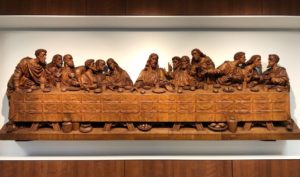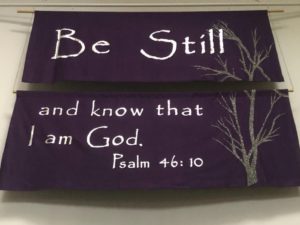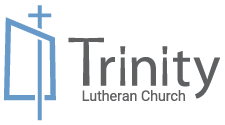COVID-19 and the Lament of the Faithful
Be gracious to me, O LORD, for I am languishing;
O LORD, heal me, for my bones are shaking with terror.
Psalm 6:2
My God, my God, why have you forsaken me?
Why are you so far from helping me, from the words of my groaning?
O my God, I cry by day, but you do not answer;
and by night, but find no rest.
Psalm 22:1-2
“a stillness . . . of poised, anxious sorrow . . .”
TIME magazine recently published a March 29 essay by N.T. Wright, professor of New Testament and Early Christianity at the University of St. Andrews in Scotland.1 In that essay, Wright asserts that Christianity offers no answers about the coronavirus pandemic, and that it is not supposed to. He spoke of our pandemic confinement as like a Lent with “no fixed Easter to look forward to,” in this new reality. “We can’t tick off the days. This is a stillness,” Wright suggests, “not of rest, but of poised, anxious sorrow.”
Wright goes on to note that some will ask why God is doing this to us, and that some good people of faith will struggle to determine if this COVID-19 onslaught is a punishment, a warning or a sign from God. But perhaps human wisdom, he writes, doesn’t mean always having an answer, a stringing together of our “dodgy speculations.” Wright remembered T. S. Eliot’s recognition back in the early 1940’s, as world war began to unfold, that sometimes the only advice is to wait without hope, because we’d be hoping for the wrong thing . . .
Dr. Wright offers a way forward for people of faith in the biblical tradition of ‘lament.’ He writes:
Lament is what happens when people ask, “Why?” and don’t get an answer. It’s where we get to when we move beyond our self-centered worry about our sins and failings and look more broadly at the suffering of the world. It’s bad enough facing a pandemic in New York City or London. What about a crowded refugee camp on a Greek island? What about Gaza? Or South Sudan?
Wright goes on to cite some of the Psalms of lament, including the two excerpts profiled at the opening of this letter to the people of Trinity. It will be with a solemn offering of Psalm 22 that the service of Maundy Thursday concludes tomorrow evening, the same words that Jesus cried out from the cross. “My God, my God, why have you forsaken me?” he cried. Most years in the church sanctuary that solemn chanting is joined with the Stripping of the Altar, when all the adornments and paraments are removed from the sanctuary and the worship space becomes the place of the cross, stripped of all the beautiful trappings of worship finery. There is a sadness and a silence when all is stripped away, and our sanctuary becomes the place of the cross, prepared for Good Friday worship. In that spirit of sadness and silence, lament is a fitting response to the Passion of the Christ.

the Last Supper carving at Trinity
The liturgy of Maundy Thursday this year will include other elements of our lament as we remember Jesus’ Last Supper without tasting the bread and wine of promise, as we evoke a “virtual” washing of the hands while we remember Jesus washing the feet of his friends, and as an absolution, the forgiveness of sin, is announced to an empty worship space. Yet, as Dr. Wright teaches, the mystery of our faith story is that God also laments. God revealed in scripture, and in human history, is deeply affected by the troubles in this world. Wright’s essay concludes:
God was grieved to his heart, Genesis declares, over the violent wickedness of his human creatures. He was devastated when his own bride, the people of Israel, turned away from him. And when God came back to his people in person—the story of Jesus is meaningless unless that’s what it’s about—he wept at the tomb of his friend. St. Paul speaks of the Holy Spirit “groaning” within us, as we ourselves groan within the pain of the whole creation. The ancient doctrine of the Trinity teaches us to recognize the One God in the tears of Jesus and the anguish of the Spirit.
It is no part of the Christian vocation, then, to be able to explain what’s happening and why. In fact, it is part of the Christian vocation not to be able to explain—and to lament instead. As the Spirit laments within us, so we become, even in our self-isolation, small shrines where the presence and healing love of God can dwell. And out of that there can emerge new possibilities, new acts of kindness, new scientific understanding, new hope . . .
Blessings in these days of our encounter with the great Christian story of Christ’s Passion and death. And be reminded that many of the Psalms of lament conclude with the light of reassurance. Finally, we have hope that the presence and healing love of God can dwell within us. Easter is coming.
Join us in live streaming of “virtual worship” in this Holy Week:
- Maundy Thursday, April 9 at 7 p.m.
- Good Friday, April 10 at 7 p.m.
- Easter Sunday, the Resurrection of Our Lord, April 12 at 9:15 a.m.
Grace and peace,
Pastor Bob Linstrom

1 “Christianity Offers No Answers about the Coronavirus. It’s Not Supposed To,” by N. T, Wright, as cited in TIME magazine online, March 29, 2020


